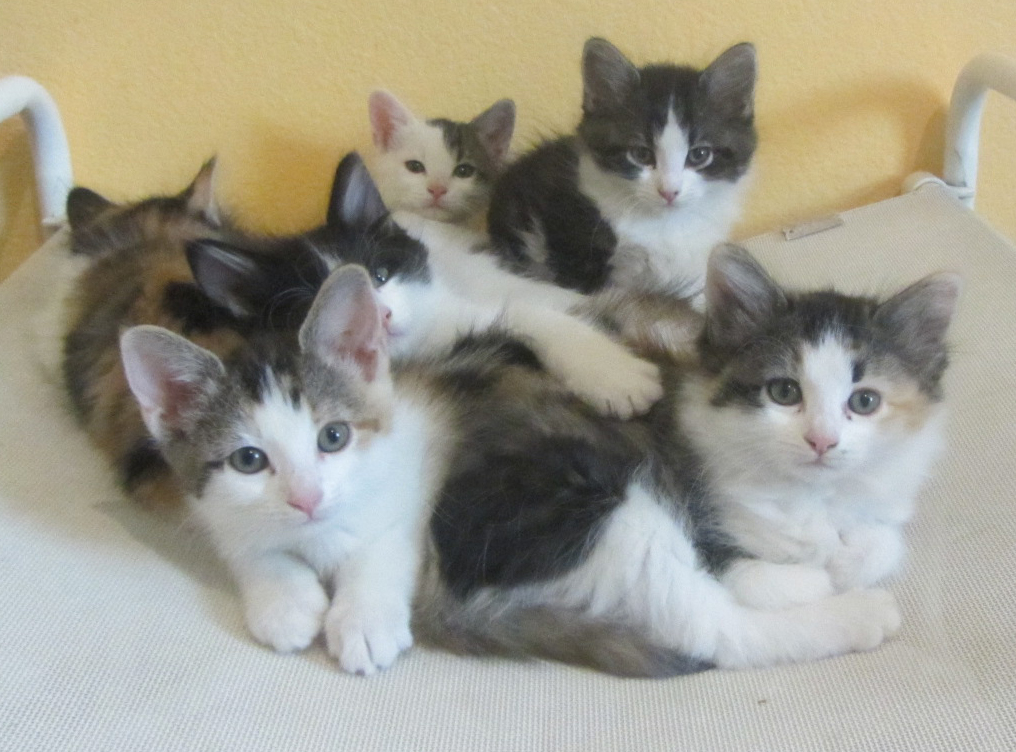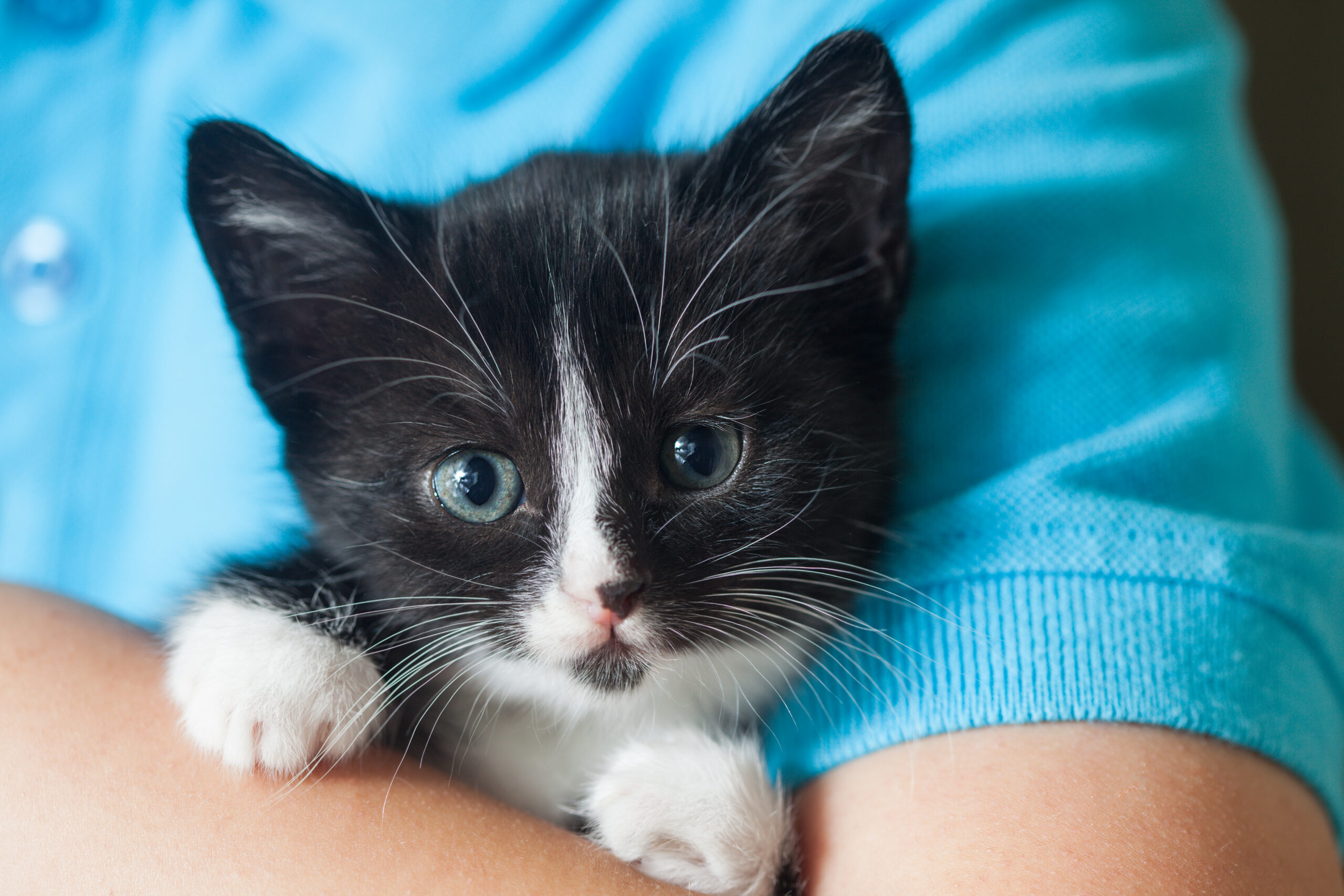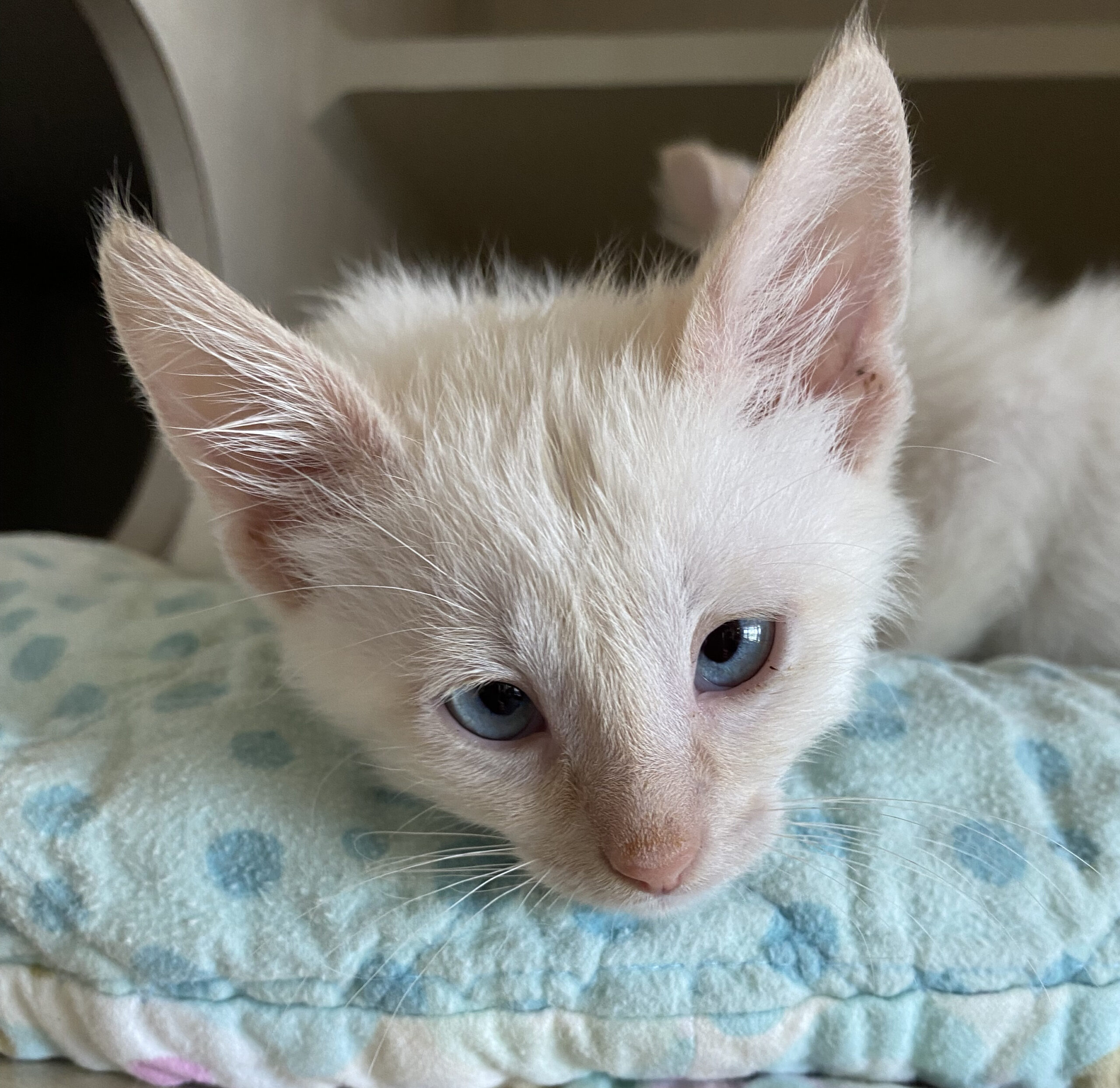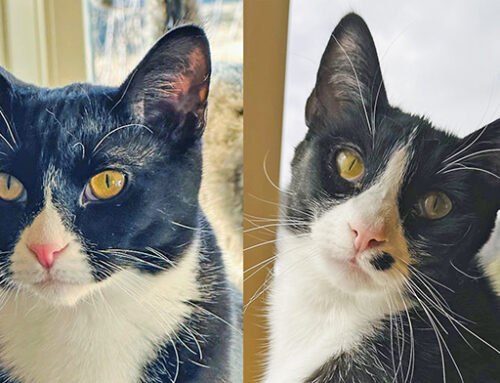There is a nasty rumor that you can’t train a cat. As we see cats grow and change in our care, we see just how intelligent, willing, and trainable cats can be. From the time they are tiny babies, we see unique personalities.
Kittens are fuzzy sponges that absorb both good and bad lessons at an incredible pace. Proper socialization teaches a kitten how to be a cat, how to have manners, how to communicate with other cats, and who her friends and enemies are. The age when kittens are most receptive is between two and seven weeks of age, but most kittens can be socialized up to four months of age- even if they are born to a feral mother.

Kittens’ first teachers are their mother and their littermates. They learn by watching their mother and patterning behaviors after her. Littermates teach each other how to play. Interactions with each other and with adult cats give kittens practice with the kitty language of meows, fluffed fur, and tail or body positions.
If there is only one kitten in a litter or if a kitten is separated early, they may have a difficult time learning to get along with other cats because they simply don’t speak the same language. For that reason, it’s ideal for kittens to stay with their mother and littermates as long as possible. Some people find that it’s actually easiest to adopt two kittens that are nearly the same age to help the two learn from each other.
Socializing a baby is based on the three T’s: Touching, Talking, and Timing.
Touching is one of the first sensations kittens feel when their mother grooms them, and petting mimics this wonderful safe experience. It teaches your kitten that contact with people is pleasant. Petting also places your scent on the kitten. This helps him associate your smell with feelings of well-being. Pet your kitten as often as possible, and take time to sit with her for petting sessions each day, giving her your undivided attention.

Talking to your kitten teaches him to listen and pay attention to your voice. During your petting sessions, use a soft, soothing voice so he associates affection with your tone of voice.
Timing helps the kitten know what’s right and wrong when you tell them at the right time. Use timing to catch her doing something right like using the litter box correctly. Offer a treat when she greets visitors with happy purrs. Celebrate with a favorite game when she plays nicely with other pets or people.
If you fill your kitten’s first weeks in a new home with positive experiences, it will shape his or her personality and behavior for their entire life.
 Grasshopper is one of the first of what will be many kittens available for adoption in the coming weeks and months at Second Chance.
Grasshopper is one of the first of what will be many kittens available for adoption in the coming weeks and months at Second Chance.
Second Chance Humane Society’s Animal Resource Center and Thrift Shops have served San Miguel, Ouray & Montrose Counties since 1994. Adoption hours are Wednesday through Sunday from 11 am to 5:30 pm. Our Community Veterinary Services are available by appointment. View our shelter pets and services online: www.secondchancehumane.org







Leave A Comment